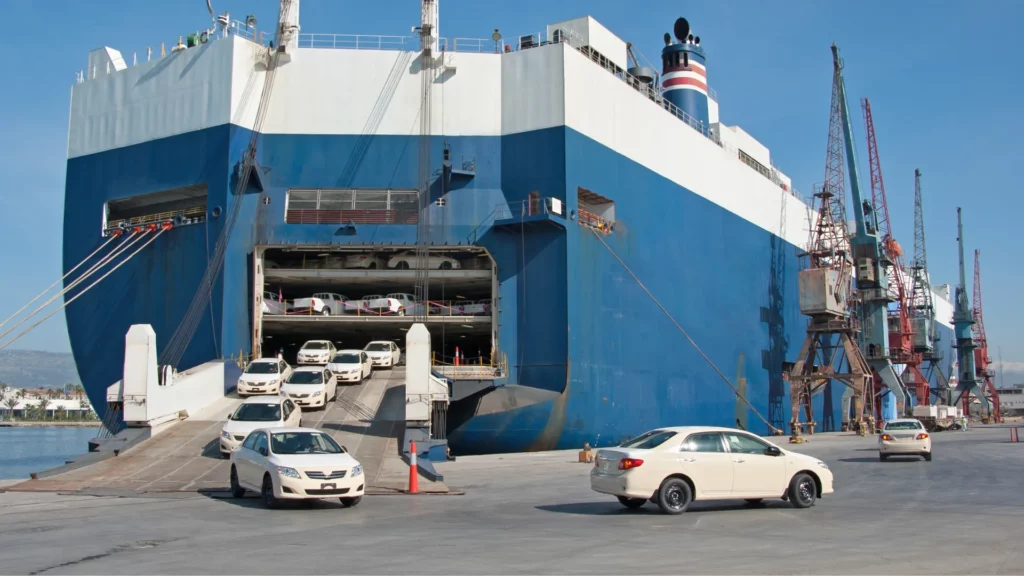Japan’s Finance Ministry reported on Wednesday that the country’s exports measured by value shrank 1.7% in May, compared to last year, led by cars, steel and mineral fuel.
Japan reported a drop in exports for the first time in eight months, triggered by US protectionist policies. Since his re-election, the world has been preparing for a recessionary period, as Donald Trump’s first order of business was to impose tariffs on nearly all countries, sabotaging global supply chains and hiking the prices of imports.
The Japanese Finance Ministry reported on Wednesday that the country’s exports measured by value shrank 1.7% in May, compared to last year, led by cars, steel and mineral fuel. The 1.8% increase in export volume suggested that exporters were dropping prices to offset the tariff shock, even if the contraction was less severe than the median analyst’s prediction of a 3.7% decline.
Imports also declined, with crude oil and coal taking the harshest hit. This resulted in Tokyo reporting a trade deficit of $4.4 billion (¥637.6 billion), with the shortfall widening from April, marking two consecutive months of deficits.
With exports dropping and the trade deficit widening, economists are flagging that Japan’s economy could shrink further in the second quarter, thereby heralding a recessionary period. With the Bank of Japan (BOJ) working hard to balance interest rates in light of inflation outpacing wage hikes, consumption has also remained slow.
In an interview with Bloomberg News, Taro Saito, the head of economic research at NLI Research Institute, explained that the effects of the tariffs are being felt, as anticipated. Export volumes, however, surprisingly surpassed volumes, suggesting that Japanese companies are lowering prices to stay competitive. Thus, the effect on profitability is not very favourable.
Trump levied a 25% tariff on car and auto part imports, along with a 25% baseline tariff on all Japanese goods. In June, he also announced that the levy on steel and aluminium would be raised to 50%, doubling the increase. It seems as though, despite his best efforts, Japan’s Prime Minister Shigeru Ishiba failed to negotiate a tariff reprieve with Trump at the ongoing Group of Seven (G7) meeting after the two-month-long bilateral negotiations. While there was a 90-day tariff pause, the 10% across-the-board levies will revert to 24% on July 9, as previously announced in April.
Despite tariffs, Japanese carmakers are slashing prices to maintain shipments as data shows that car exports to the US declined 24.7% by value last month, as opposed to only 3.9% by volume, despite auto exports comprising a quarter of Japan’s exports to the US. With Trump focusing on maintaining a trade balance, Tokyo’s trade surplus with Washington has remained one of the primary reasons for the Trump administration’s efforts to rebalance trade. Japan did record a trade surplus of ¥451.7 billion, with imports declining 13.5%, and overall US-bound exports dropping 11.1%.
On the other hand, Japan’s exports to China fell by 8.8% and those to Europe increased by 4.9%. Economists are concerned about the state of the Japanese economy if the additional 24% tariff is reinstated at the end of 90 days. While the 10% across-the-board duties are likely to remain, if additional tariffs are applied, it could result in serious economic damage.
According to the Finance Ministry, the yen was 7.4% stronger against the dollar in May, averaging ¥143.97. Due to a stronger yen, transaction data denominated in dollars typically loses value when converted to Japanese currency. The BOJ decreased the rate at which it is cutting back on bond purchases from next year and maintained its benchmark interest rate constant on Tuesday due to the ongoing uncertainty around tariffs. The central bank stated in its policy statement that it is ‘extremely uncertain’ how measures on international trade will impact economies and prices.
Ishiba has already approved emergency measures to help households and businesses withstand the impact of the tariffs. As inflation continues to rise, cash handouts could also be provided, while opposition parties are advocating for sales tax reductions. The reaction of the Japanese people to the persisting economic situation will be reflected in the national election, which is likely to be held next month.
